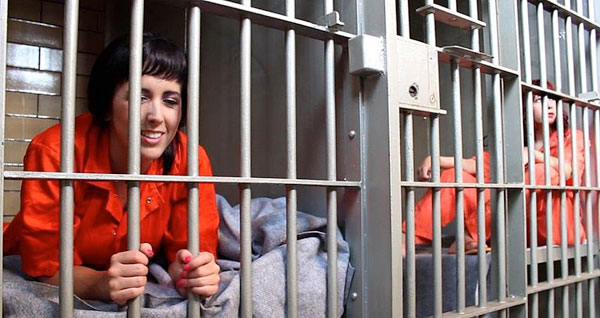
The American Civil Liberties Union (ACLU) served as a court appointed monitor of the LA County Jail since 1985. They documented overcrowding, unsanitary conditions, and extreme abuse of inmates at the hands of deputies. In early 2012, LA County Sheriff, Lee Baca, succumbed to mounting national pressure to allow access to the jails for study on the feasibility of closing Men’s Central Jail. The ACLU and Sheriff Baca both endorsed a new report around April 2012 that recommended closing the infamous jail within two years.
Recently, the ACLU asked the U.S. District Judge, Dean D. Pregerson, for an emergency order to force Sheriff Alex Villanueva and the Board of Supervisors to immediately address the “abysmal” conditions at the county jail’s inmate reception center. The request revives a 1975 class-action suit which led to orders that the county end dangerous and inhumane practices that violate inmates’ rights.
The Inmate Reception Center processes approximately 120,000 inmates annually through the county jail system, according to the Sheriff’s Department. Its facilities have inadequate infrastructure to sustain the volume of criminalized people.
Inmate attorneys who visited the center reported that there were piles of garbage scattered throughout the clinic, toilets were smeared with feces and the attorney did not observe an effort to sanitize the area during the time they were in the clinic. “While I was there I saw people who were chained to the benches in the front area, whom I understand have serious mental illness, stand up to attempt to pee into the orange juice containers but missing with some of the pee ending up on the floor.”
Mentally ill inmates reported that the jail failed to provide the psychiatric medicines that they take regularly to treat such conditions as schizophrenia, bipolar disorder or chronic PTSD. Terry A. Kupers, the psychiatrist ACLU attorneys cited, testified that “an experience of abrupt discontinuation of psychotropic medications followed by exacerbated psychiatric decompensation will worsen the ongoing course of the mental illness, worsen the disability and make the prognosis more dire.”
The 2019 Office of Inspector General Review, OIG, of the IRC Intake Evaluation Process observed the excessive restraining of inmates to chairs and OIG personnel have observed unsanitary conditions on multiple occasions. Severe restraint, Kupers warns, as observed at IRC has very harmful effects on all inmates, but especially impacts inmates with mental illness. Many of those suffering from psychosis become more dysfunctional, and lose confidence in custody and mental health staff. Subsequently, these conditions not only harmfully impact a defendant’s ability to help their own defense but also make mental health treatment very problematic.
The two routine practices, abrupt discontinuation of medication for the duration of inmates’ stay in IRC and severe restraint, both violate all standards of medical health care and cause damage to the psychiatric condition of the inmates. The practices are connected, as the removal of prescribed medication causes exacerbation of mental illness and consequently increases disability.
The emergency filing asks the court to limit custody at the IRC to 24 hours at most and improve conditions of the facilities to meet minimum standards of sanitation, health care and human decency. But advocates and community groups argue that the real solution requires state investment in alternatives to incarceration.
It is imperative to recognize systems such as prisons as sites where enormous amounts of violence take place as systems that were created to be inherently violent in order to maintain control and ultimately harm vulnerable members of society. To reduce the harms of incarceration systems there must be state investment in community-based solutions that not only address incidents of violence but also facilitate collective responses to them: empowering collective action to build relationships and communities that could intervene in instances of violence and ultimately prevent it.








